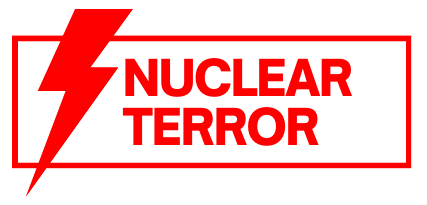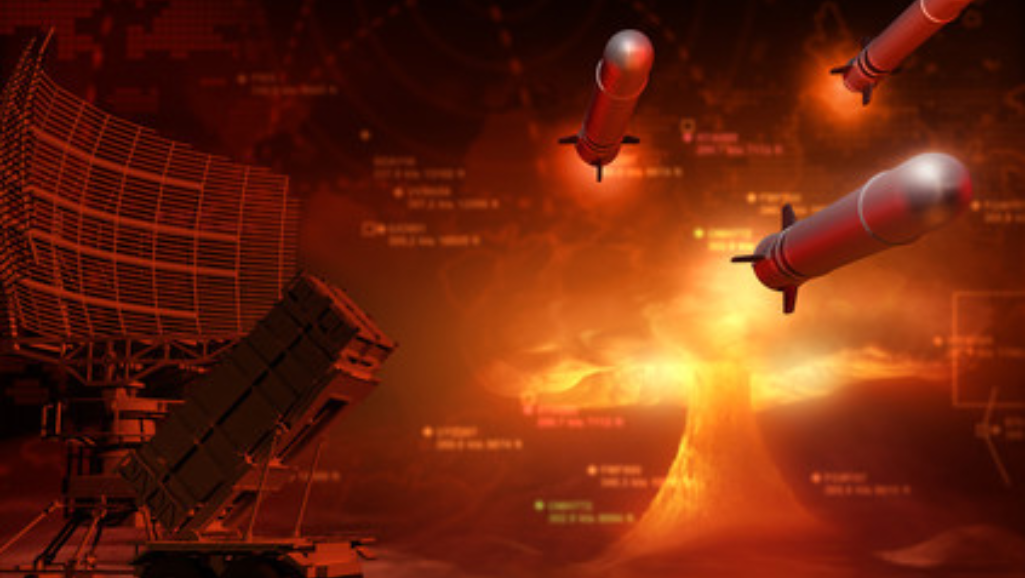You want to know who poses the biggest nuclear threat in the world. Well, buckle up because we’re about to take you on a guided tour of the major players. From North Korea’s persistent menace to Iran’s unresolved ambitions, and Russia’s resurgent power to the United States’ delicate balancing act, there’s no shortage of contenders. Let’s not forget about China’s rising influence and Pakistan’s volatility. And, of course, there’s the ever-growing concern of non-state actors. Get ready to dive into the complex world of global security.
Historical Context: Understanding Past Threats
To understand the scale and gravity of past nuclear threats, you must examine the numerous incidents and conflicts that have occurred throughout history. The understanding of nuclear disarmament and the assessment of nuclear proliferation risks are crucial in comprehending the historical context of nuclear threats.
Throughout history, there have been several incidents that have highlighted the devastating potential of nuclear weapons. The bombings of Hiroshima and Nagasaki during World War II demonstrated the horrific consequences of nuclear warfare. These events prompted the international community to pursue nuclear disarmament efforts, recognizing the need to prevent the use of such weapons in the future.
Additionally, the Cold War between the United States and the Soviet Union brought about a heightened sense of nuclear threat. The arms race between these two superpowers increased the risk of nuclear proliferation, as more nations sought to acquire these weapons to ensure their own security.
Furthermore, the Cuban Missile Crisis in 1962 was a defining moment in assessing the dangers of nuclear conflict. The standoff between the United States and the Soviet Union over the placement of nuclear missiles in Cuba was a tense situation that brought the world to the brink of nuclear war.
North Korea: A Persistent Nuclear Menace
North Korea poses a persistent nuclear menace. The country’s nuclear program has been a cause for concern for the international community for decades. Despite numerous attempts by the international community to denuclearize North Korea, the country has consistently defied these efforts and continued to develop its nuclear capabilities.
North Korea’s nuclear program began in the 1950s with the support of the Soviet Union. Over the years, it has made significant progress in its nuclear weapons program, conducting multiple nuclear tests and launching long-range ballistic missiles. These actions have not only violated several United Nations Security Council resolutions but have also heightened tensions in the region.
International efforts to denuclearize North Korea have involved diplomatic negotiations, economic sanctions, and pressure from neighboring countries. However, these efforts have not yielded the desired outcome. North Korea has repeatedly shown its determination to maintain and strengthen its nuclear capabilities, citing national security concerns and the need for self-defense.
The international community must continue to address the North Korean nuclear threat through diplomatic channels and economic pressure. It is crucial to maintain a united front and explore new approaches to engage with North Korea. Only through persistent efforts and a comprehensive strategy can the international community hope to bring about a peaceful resolution to the North Korean nuclear issue.
Iran: Unresolved Concerns and Ambitions
Iran’s nuclear program raises significant concerns and ambitions for the international community. As one of the most controversial topics in global politics, Iran’s nuclear ambitions have been a source of unresolved concerns for many countries. The fear is that Iran’s pursuit of nuclear weapons could destabilize the already volatile Middle East region and threaten global security.
| Unresolved Concerns | Ambitions |
|---|---|
| Iran’s lack of transparency in its nuclear activities | Iran’s desire to become a regional power |
| The potential for Iran to develop nuclear weapons | Iran’s attempts to expand its influence in the Middle East |
| The risk of nuclear proliferation in the region | Iran’s refusal to comply with international agreements |
One of the main unresolved concerns is Iran’s lack of transparency in its nuclear activities. Despite signing the Nuclear Non-Proliferation Treaty, there are suspicions that Iran may be covertly developing nuclear weapons. This raises alarm bells for the international community, as it poses a significant threat to regional stability.
Furthermore, Iran’s ambitions to become a regional power are evident through its aggressive actions in the Middle East. The country has been accused of supporting terrorist organizations and destabilizing neighboring countries. This has further heightened concerns about Iran’s nuclear program and its potential to advance its regional dominance.
In addition, Iran’s refusal to comply with international agreements, such as the Joint Comprehensive Plan of Action (JCPOA), has fueled apprehensions. The JCPOA was designed to limit Iran’s nuclear capabilities in exchange for sanctions relief, but Iran has repeatedly violated its terms. This defiance highlights Iran’s determination to pursue its nuclear ambitions, despite international opposition.
Russia: A Resurgent Nuclear Power
Russia’s nuclear capabilities have undergone a resurgence in recent years, with the country modernizing its arsenal and developing new nuclear technologies. This has raised concerns among global powers, leading to a heightened response to Russia’s nuclear activities. The global community is closely monitoring Russia’s nuclear advancements, recognizing the need for a proactive approach to address the potential threats posed by this resurgent nuclear power.
Russian Nuclear Capabilities
You should be aware of the resurgent nuclear power of Russia and its current capabilities. Russia has made significant advancements in Russian nuclear technology, proving its commitment to maintaining its position as a global nuclear power. Despite international nuclear disarmament efforts, Russia has actively pursued the modernization of its nuclear arsenal.
Here are three key aspects of Russia’s nuclear capabilities:
- Modernization: Russia has been investing heavily in upgrading its nuclear arsenal by developing advanced delivery systems and improving the effectiveness and reliability of its nuclear warheads. This includes the development of hypersonic missiles and strategic bombers.
- Deterrence Strategy: Russia views its nuclear weapons as a crucial element in its deterrence strategy. It believes that maintaining a credible and robust nuclear arsenal is vital for its national security and to counter any potential threats.
- Nuclear Doctrine: Russia’s nuclear doctrine emphasizes the use of nuclear weapons as a means of last resort, particularly in response to large-scale conventional aggression or the use of nuclear weapons against Russia or its allies.
Understanding Russia’s nuclear capabilities is essential in assessing the global nuclear landscape and addressing potential risks and challenges.
Global Response to Russia?
In response to Russia’s resurgent nuclear power, the global community must actively address the potential threats and challenges it poses. Global cooperation and diplomatic strategies are essential in mitigating the risks associated with Russia’s nuclear capabilities. By working together, countries can develop effective measures to ensure the safety and security of nuclear materials, prevent proliferation, and maintain stability.
One possible diplomatic strategy is to engage in dialogue with Russia, emphasizing the importance of transparency and adherence to international agreements. By promoting open communication and cooperation, the global community can foster trust and reduce tensions. Additionally, strengthening existing non-proliferation treaties and implementing robust verification mechanisms can help prevent the spread of nuclear weapons technology.
The table below highlights the key areas where global cooperation and diplomatic strategies are crucial in responding to Russia’s resurgent nuclear power:
| Areas of Focus | Importance |
|---|---|
| Transparency | Enhances trust and security |
| Non-proliferation | Prevents spread of weapons |
| Verification | Ensures compliance |
| Crisis management | Maintains stability |
United States: Balancing Global Security
To effectively balance global security, the United States must carefully navigate its role as a nuclear power. As one of the most powerful countries in the world, the United States has a responsibility to maintain stability and prevent the misuse of nuclear weapons. Here are three key factors that contribute to the United States’ ability to balance global security:
1) Balancing military strength with diplomatic efforts: The United States must strike a delicate balance between maintaining a strong nuclear deterrent and engaging in diplomatic negotiations. By demonstrating a commitment to non-proliferation and disarmament, the United States can encourage other nations to follow suit and reduce the global nuclear threat.
2) Engaging in multilateral frameworks: The United States should actively participate in international agreements and organizations aimed at promoting nuclear security. By collaborating with other countries, the United States can share information, coordinate responses to potential threats, and strengthen global non-proliferation efforts.
3) Learning from past threats: Understanding the lessons from historical nuclear threats is crucial in effectively balancing global security. By analyzing past incidents, such as the Cuban Missile Crisis or the Cold War, the United States can develop strategies to prevent similar situations from arising in the future.
China: Rising Nuclear Power and Regional Influence
What role does China play as a rising nuclear power and regional influencer in the world? China’s nuclear advancements have significant geopolitical implications, raising concerns about the balance of power and stability in the region. With its growing arsenal and technological capabilities, China is increasingly seen as a major player in the global nuclear landscape.
China’s nuclear advancements have the potential to disrupt the delicate balance of power in the region. As China expands its nuclear capabilities, neighboring countries may feel threatened and seek to enhance their own nuclear arsenals. This could lead to a dangerous arms race in the region, further escalating tensions and increasing the risk of conflict.
In addition to the potential for an arms race, China’s rise as a nuclear power presents challenges in regional diplomacy. Its increasing influence and assertiveness in territorial disputes, such as the South China Sea, have strained relations with neighboring countries and raised concerns about China’s intentions.
To manage China’s rise as a nuclear power and regional influencer, international cooperation is crucial. Dialogue and engagement with China should focus on promoting transparency, confidence-building measures, and arms control agreements. By fostering open communication and cooperation, the international community can work towards ensuring stability and peace in the region.
Pakistan: Nuclear Weapons in a Volatile Region
Continuing from China’s role as a rising nuclear power and regional influencer, one must now address the issue of Pakistan’s nuclear weapons in a volatile region. Pakistan, with its nuclear arsenal, presents a unique challenge to global security due to its complex geopolitical dynamics and history of nuclear proliferation.
- Nuclear proliferation: Pakistan’s acquisition of nuclear weapons has raised concerns about the spread of nuclear technology and materials to other countries or non-state actors. The fear is that these weapons could fall into the wrong hands, leading to catastrophic consequences.
- Geopolitical instability: Pakistan’s location in a volatile region adds another layer of complexity. The country shares borders with India, a nuclear-armed neighbor with which it has a history of conflict. Additionally, Afghanistan’s instability and the presence of terrorist groups in the region further exacerbate the risks associated with Pakistan’s nuclear weapons.
- Regional implications: The presence of nuclear weapons in Pakistan has the potential to trigger an arms race in South Asia. The nuclear deterrence between India and Pakistan is delicate, and any miscalculation or escalation could have grave consequences for the region and beyond.
Given these factors, it is crucial for the international community to engage with Pakistan and its neighbors to ensure the safe and responsible management of Pakistan’s nuclear arsenal. This requires diplomatic efforts to foster trust, promote transparency, and establish robust safeguards against nuclear proliferation in this volatile region.
Non-State Actors: The Growing Terrorist Threat
Non-state actors pose a growing terrorist threat in regards to nuclear capabilities. As terrorist organizations continue to evolve, their access to nuclear materials and knowledge becomes increasingly concerning. The black market for nuclear materials further exacerbates the situation, making it easier for non-state actors to acquire the necessary resources for a potential nuclear attack.
Emerging Terrorist Capabilities
You should be aware of the increasing threat posed by terrorist organizations in acquiring nuclear capabilities. As emerging terrorist tactics continue to evolve, the need for robust nuclear security measures becomes paramount. Here are three key points to consider:
- Nuclear smuggling: Terrorist organizations are actively seeking to acquire nuclear material through illicit means. This includes smuggling radioactive materials across borders, exploiting weak security protocols, and infiltrating nuclear facilities. The potential consequences of such acquisitions are dire, as terrorists could use these materials to build a crude nuclear weapon or a dirty bomb.
- Cyber attacks: In today’s digital age, terrorists are not only relying on physical means to acquire nuclear capabilities but also exploiting vulnerabilities in cyber systems. A successful cyber attack on a nuclear facility could result in the theft of sensitive information, disruption of critical infrastructure, or even sabotage of nuclear reactors.
- Insider threats: The involvement of insiders within nuclear facilities poses a significant risk. Terrorist organizations may attempt to recruit individuals working in these facilities to gain access to sensitive information or to sabotage nuclear infrastructure from within. Strengthening background checks, implementing regular security audits, and promoting a strong culture of security awareness are crucial in mitigating this threat.
It is imperative that nations collaborate and invest in enhancing nuclear security measures to effectively counter the growing terrorist threat.
Nuclear Materials Black Market
To effectively address the growing terrorist threat, it is crucial to understand the risks associated with the black market trade of nuclear materials. Nuclear material smuggling has become a significant concern in recent years, as non-state actors seek to acquire these materials for illicit purposes. The black market provides a platform for illegal trade, allowing terrorists to obtain nuclear materials and potentially use them to build weapons of mass destruction. This poses a grave danger to global security. International cooperation is essential in combating this threat. Countries must work together to strengthen border controls, enhance intelligence sharing, and implement stricter regulations on the trade of nuclear materials. By doing so, we can disrupt the operations of these black market networks and prevent terrorists from acquiring the means to carry out devastating attacks.


